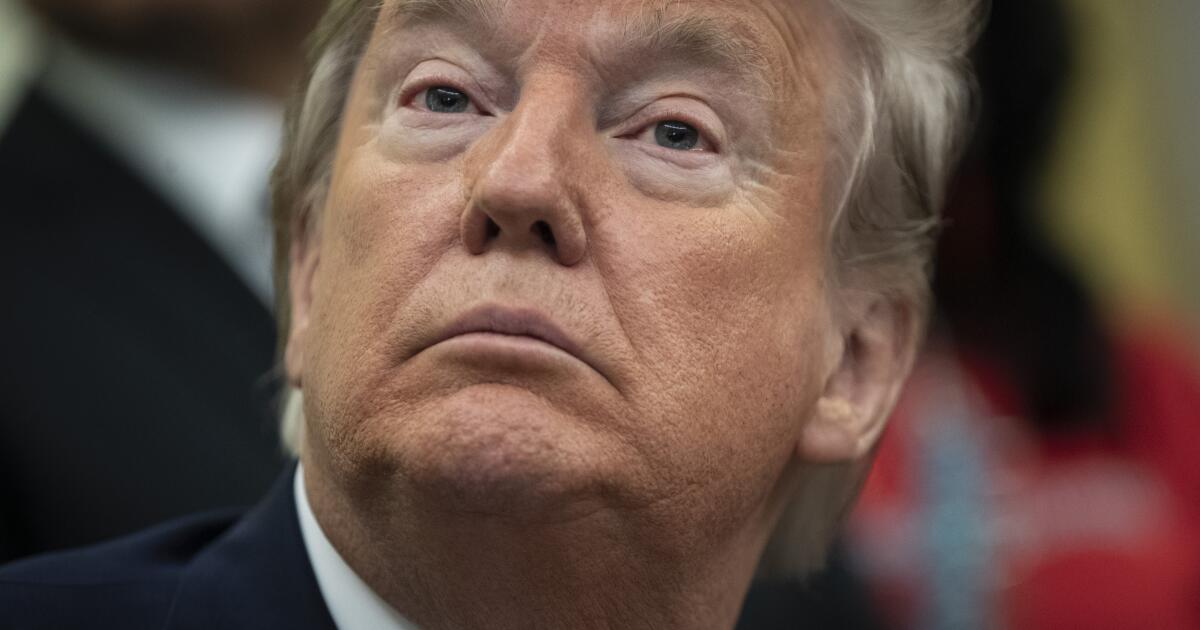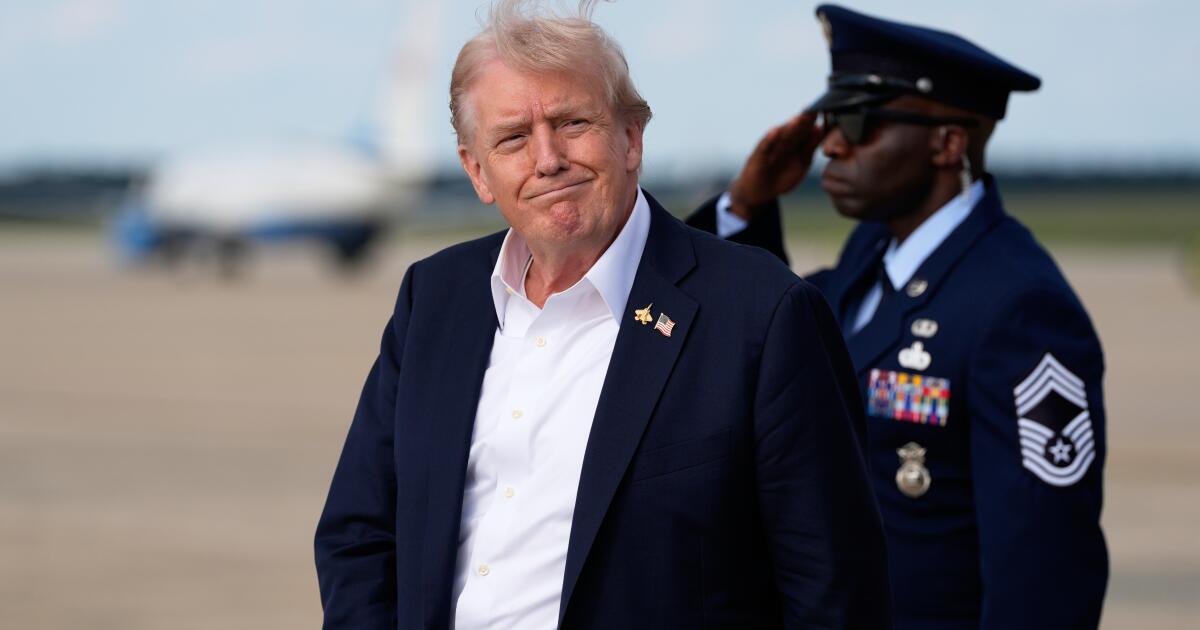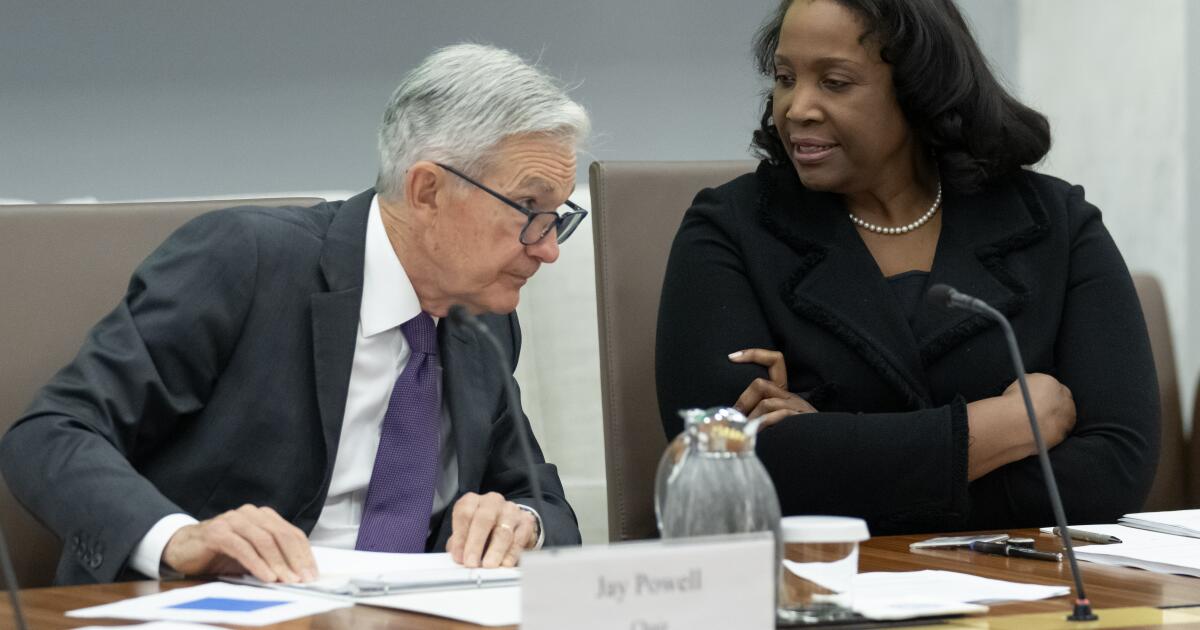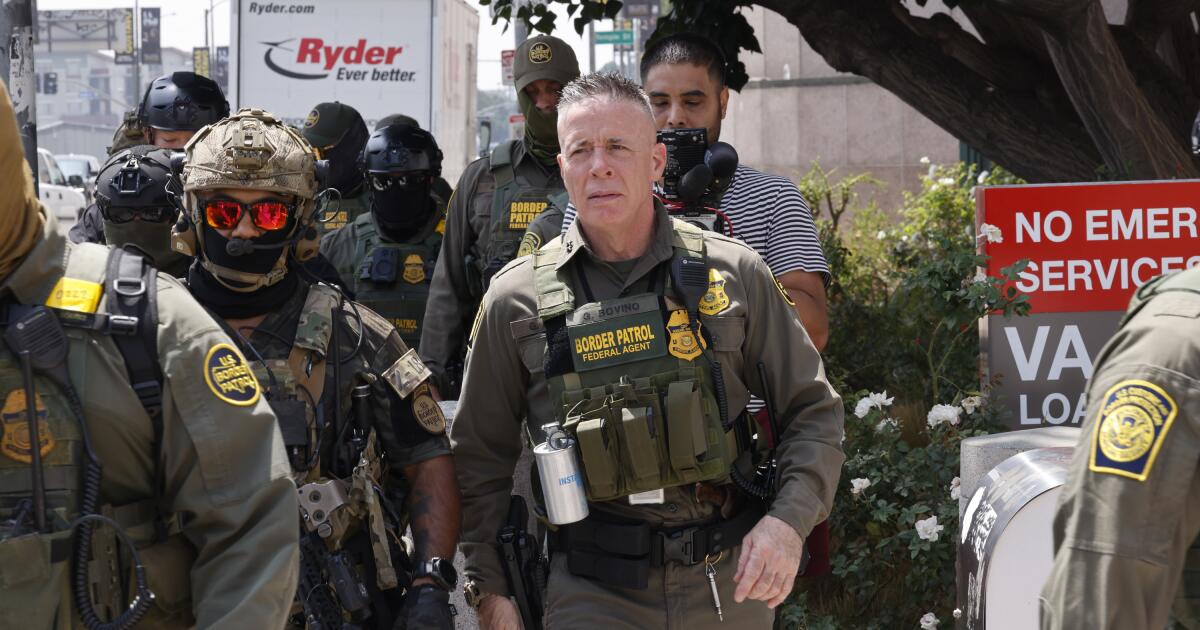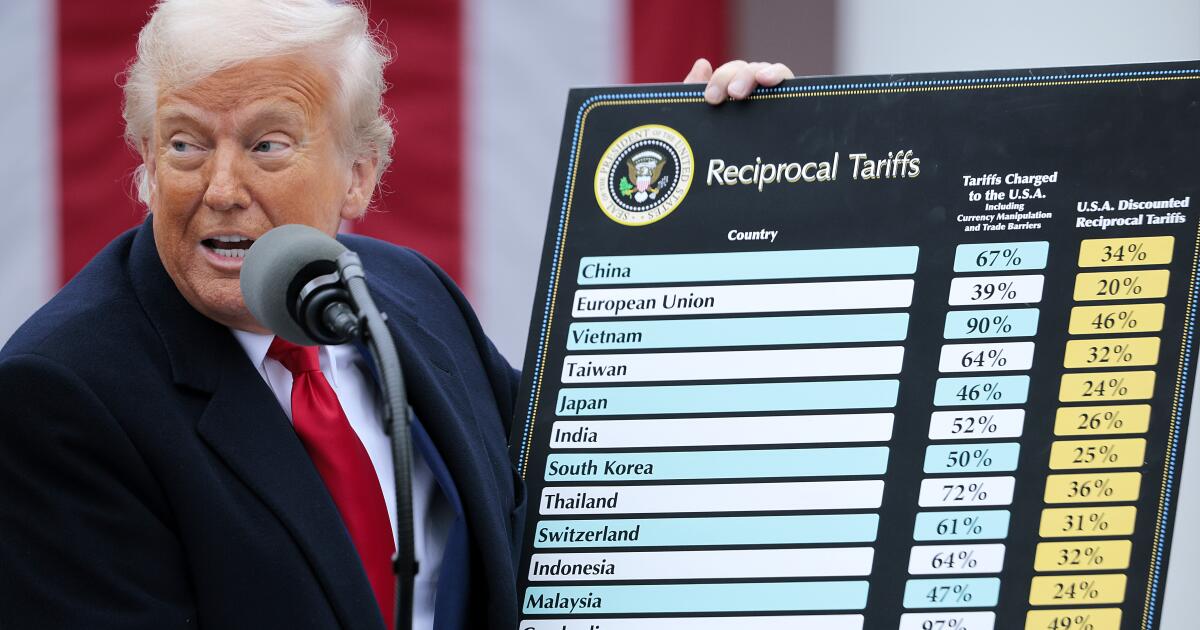WASHINGTON — The Supreme Court ruled Monday for the Trump administration and agreed U.S. immigration agents may stop and detain anyone they suspect is in the U.S. illegally based on little more than their working at a car wash, speaking Spanish or having brown skin.
In a 6-3 vote, the justices granted an emergency appeal and lifted a Los Angeles judge’s order that barred “roving patrols” from snatching people off Southern California streets based on how they look, what language they speak, what work they do or where they happen to be.
The decision is a significant victory for President Trump, clearing the way for his oft-promised “largest Mass Deportation Operation” in American history.
The court’s conservatives issued a brief, unsigned order that freezes the district judge’s restraining order indefinitely and frees immigration agents from it. As a practical matter, it gives immigration agents broad authority to stop people who they think may be here illegally.
Although Monday’s order is not a final ruling, it strongly signals the Supreme Court will not uphold strict limits on the authority of immigration agents to stop people for questioning.
The Supreme Court has been sharply criticized in recent weeks for handing down orders with no explanation. Perhaps for that reason, Justice Brett M. Kavanaugh wrote a 10-page opinion to explain the decision.
He said federal law says “immigration officers ‘may briefly detain’ an individual ‘for questioning’ if they have ‘a reasonable suspicion, based on specific articulable facts, that the person being questioned … is an alien illegally in the United States.’”
He said such stops are reasonable and legal based on the “totality of the circumstances. Here, those circumstances include: that there is an extremely high number and percentage of illegal immigrants in the Los Angeles area; that those individuals tend to gather in certain locations to seek daily work; that those individuals often work in certain kinds of jobs, such as day labor, landscaping, agriculture, and construction, that do not require paperwork and are therefore especially attractive to illegal immigrants; and that many of those illegally in the Los Angeles area come from Mexico or Central America and do not speak much English.”
Those were exactly the factors that the district judge and the U.S. 9th Circuit Court of Appeals said agents may not use as a basis for stopping someone for questioning.
The three liberal justices dissented.
Justice Sonia Sotomayor called the decision “yet another grave misuse of our emergency docket. We should not have to live in a country where the Government can seize anyone who looks Latino, speaks Spanish, and appears to work a low wage job. Rather than stand idly by while our constitutional freedoms are lost, I dissent.”
“The Government … has all but declared that all Latinos, U.S. citizens or not, who work low wage jobs are fair game to be seized at any time, taken away from work, and held until they provide proof of their legal status to the agents’ satisfaction,” she wrote.
Sotomayor also disagreed with Kavanaugh’s assertions.
“Immigration agents are not conducting ‘brief stops for questioning,’ as the concurrence would like to believe. They are seizing people using firearms, physical violence, and warehouse detentions,” she wrote. “Nor are undocumented immigrants the only ones harmed by the Government’s conduct. United States citizens are also being seized, taken from their jobs, and prevented from working to support themselves and their families.”
In response, Kavanaugh said he agreed agents may not use “excessive force” in making stops or arrests. But the judge’s order dealt only with the legal grounds for making stops, he said.
Kavanaugh stressed the court has a limited role when it comes to immigration enforcement.
“The Judiciary does not set immigration policy or decide enforcement priorities. It should come as no surprise that some Administrations may be more laissez-faire in enforcing immigration law, and other Administrations more strict,” he wrote.
He noted the court had ruled for the Biden administration and against Texas, which had sought stricter enforcement against those who crossed the border or had a criminal record.
The case decided Monday began in early June when Trump appointees targeted Los Angeles with aggressive street sweeps that ensnared longtime residents, legal immigrants and even U.S. citizens.
A coalition of civil rights groups and local attorneys challenged the cases of three immigrants and two U.S. citizens caught up in the chaotic arrests, claiming they had been grabbed without reasonable suspicion — a violation of the 4th Amendment’s ban on unreasonable searches and seizures.
The lead plaintiffs — Pedro Vasquez Perdomo and two other Pasadena residents — were arrested at a bus stop when they were waiting to be picked up for a job.
On July 11, U.S. District Judge Maame Ewusi-Mensah Frimpong issued a temporary restraining order barring stops based solely on race or ethnicity, language, location or employment, either alone or in combination.
On July 28, the 9th Circuit Court of Appeals agreed.
The case remains in its early phases, with hearings set for a preliminary injunction this month. But the Department of Justice argued even a brief limit on mass arrests constituted a “irreparable injury” to the government.
A few days later, Trump’s lawyers asked the Supreme Court to set aside Frimpong’s order. They said agents should be allowed to act on the assumption that Spanish-speaking Latinos who work as day laborers, at car washes or in landscaping and agriculture are likely to lack legal status.
“Reasonable suspicion is a low bar — well below probable cause,” Solicitor Gen. D. John Sauer wrote in his appeal. Agents can consider “the totality of the circumstances” when making stops, he said, including that “illegal presence is widespread in the Central District [of California], where 1 in every 10 people is an illegal alien.”
Both sides said the region’s diverse demographics support their view of the law. In an application to join the suit, Los Angeles and 20 other Southern California municipalities argued that “half the population of the Central District” now meet the government’s criteria for reasonable suspicion.
Roughly 10 million Latinos live in the seven counties covered by the order, and almost as many speak a language other than English at home.
Sauer also questioned whether the plaintiffs who sued had standing because they were unlikely to be arrested again. That argument was the subject of sharp and extended questioning in the 9th Circuit, where a three-judge panel ultimately rejected it.
“Agents have conducted many stops in the Los Angeles area within a matter of weeks, not years, some repeatedly in the same location,” the panel wrote in its July 28 opinion denying the stay.
One plaintiff was stopped twice in the span of 10 days, evidence of a “real and immediate threat” that he or any of the others could be stopped again, the 9th Circuit said.
Days after that decision, heavily armed Border Patrol agents sprang from the back of a Penske movers truck, snatching workers from the parking lot of a Westlake Home Depot in apparent defiance of the courts.
Immigrants rights advocates had urged the justices to not intervene.
“The raids have followed an unconstitutional pattern that officials have vowed to continue,” they said. Ruling for Trump would authorize “an extraordinarily expansive dragnet, placing millions of law-abiding people at imminent risk of detention by federal agents.”
The judge’s order had applied in an area that included Los Angeles and Orange counties as well as Riverside, San Bernardino, Ventura, Santa Barbara and San Luis Obispo counties.
“Every Latino should be concerned, every immigrant should be concerned, every person should be concerned,” Alfonso Barragan, a 62-year-old U.S. citizen, said Monday on his way into one of the L.A. Home Depots repeatedly hit by the controversial sweeps. “They’re allowing the [federal immigration agents] to break the law.”
Savage reported from Washington and Sharp from Los Angeles. Times staff writer Ruben Vives in Los Angeles contributed to this report.
